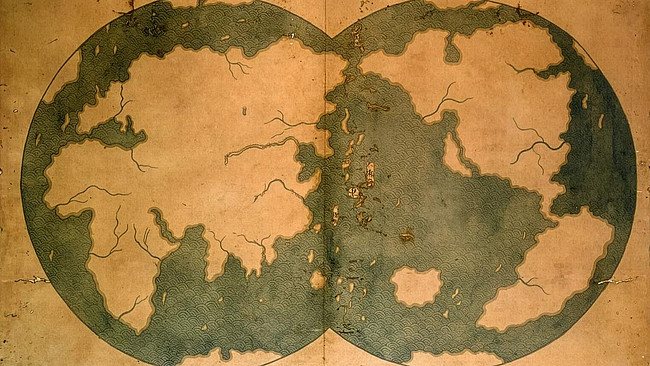A Global History of Collecting: Objects, Institutions, and Knowledge Practices across Cultures
Call for Contributions
Following up on the international AGYA conference “Collecting as Cultural Practice: Collecting Cultures and Object Itineraries in Eurasia and the MENA region”, AGYA members PD Dr habil. Phillip Grimberg and Dr. Ghada Mohamed are delighted to invite contributions for an edited volume that rethinks the global history of collecting through the lens of the sociology of knowledge. This interdisciplinary book project seeks to examine collecting not merely as a cultural or aesthetic activity, but as epistemological practices – a powerful epistemic mechanism through which institutions and individuals across the globe have shaped systems of value, identity, memory, and authority.
By focusing on the “social lives of objects” and their role in the production, circulation, and contestation of knowledge, this volume interrogates collecting practices from antiquity to the digital age, encompassing contexts as diverse as African royal courts, East Asian philosophical traditions, indigenous American rituals, Islamic manuscript culture, and contemporary digital heritage.
Aims and Scope
We aim to bring together contributions from scholars of diverse disciplinary, regional, and methodological backgrounds to explore how collections – whether royal treasuries, ethnographic cabinets, temple inventories, or digital repositories – construct, stabilise, and transmit forms of knowledge.
In bringing these perspectives into dialogue, the volume proceeds from the recognition that acts of collecting are always embedded within broader historical, political, social and cultural frameworks. Understanding collecting in this way reveals its entanglement with diverse spheres, including:
- Epistemic and cultural authority
- Colonial and imperial histories
- Religious and philosophical worldviews
- The politics of memory and restitution
- Institutional and state-building processes
- Digital transformation and algorithmic curation
The scope of the volume is comparative and transregional in nature, covering a wide range of regions and contexts, including:
- Africa
- East, South, and Southeast Asia
- Central Asia
- The Islamic World
- The Americas
- Europe
- Oceania
- Digital collecting across geographies
Thematic Foci
Proposals may engage with (but are not limited to) the following questions:
- How do collections mediate relations between power, knowledge, and identity?
- What social, political, or religious functions do objects perform within different knowledge systems?
- How have colonial, postcolonial, or imperial contexts shaped collecting practices?
- What role does collecting play in processes of cultural erasure, survival, or resurgence?
- How do digital technologies challenge or replicate historical patterns of object accumulation and control?
- How do different epistemologies (indigenous, religious, bureaucratic, philosophical) shape classificatory regimes?
Other thematic foci not listed here, but clearly connected to the overarching issue are equally welcome.
Structure and Comparative Vision
Chapters in the volume are grouped into regional sections, each structured around three intersecting temporalities:
- Premodern and early traditions of collecting (courtly, sacred, philosophical, etc.)
- Colonial/imperial and early modern transformations
- Postcolonial, contemporary, and digital reconfigurations
This triadic structure allows contributors to highlight continuities, ruptures, and reinventions across time and space.

Contribution Guidelines
We welcome contributions that meet the following general criteria:
Length: max. 5,000-8,000 words (including references)
Language: English
Authorship: Individual or co-authored contributions permitted
Editorial Information and Publication Plans
The volume will be edited by AGYA members PD Dr habil. Phillip Grimberg (FAU Erlangen-Nuremberg, Germany & Fellow of the Royal Historical Society) and Dr. Ghada Mohamed (Cairo University, Egypt) and is under contract with Routledge Publishing. Accordingly, all contributions will benefit from a thorough peer-review process.
The volume will be published in English and presented at a follow-up symposium or a dedicated book launch event, contingent upon available funding. It will be publicly accessible through Open Access and designed to reach both academic and student audiences.
Submission Process and Timeline
We warmly welcome proposals from scholars in history, anthropology, archaeology, museum studies, art history, religious studies, sociology, and adjacent fields. We particularly encourage contributions from underrepresented regions and voices, including early-career researchers and scholars based in the Global South.
- Abstract (max. 500 words)
Should include title, a short description of the case study or topic, methodological approach, and relevance to the volume’s overarching questions.
- Short bio (max. 150 words)
Should include institutional affiliation, relevant publications and/or research projects.
- Abstracts due: 31 March 2026
- Submission: Abstracts should be sent to the editorial team at: grimberg(at)grimberg.eu and gh_mohamed55(at)cu.edu.eg
Full Text of the Call:
Members in Charge
- Phillip Grimberg, Friedrich-Alexander University Erlangen-Nuremberg, Germany
- Ghada Mohamed, Cairo University, Egypt